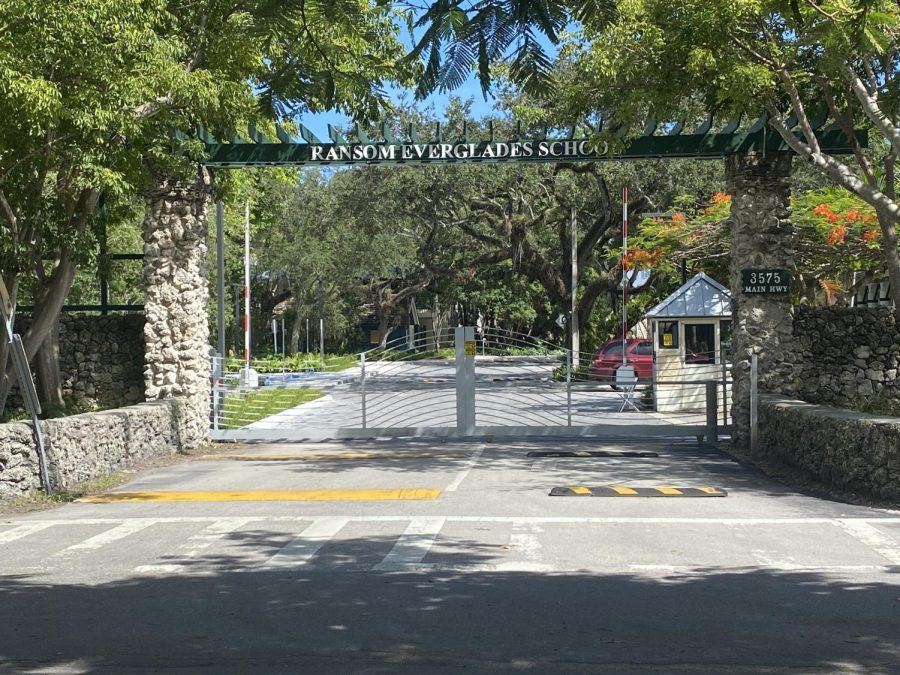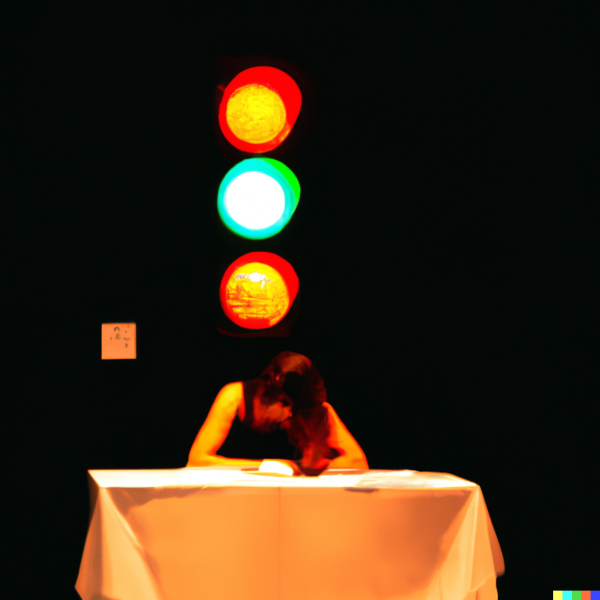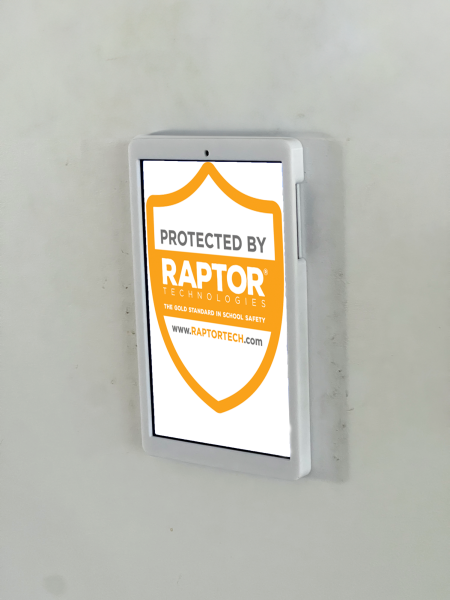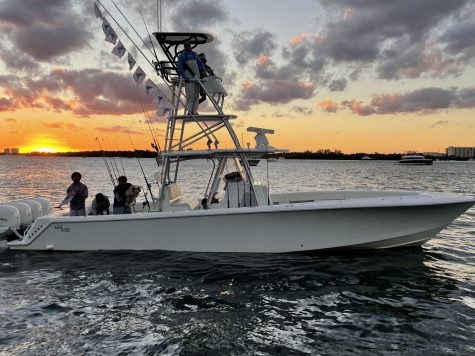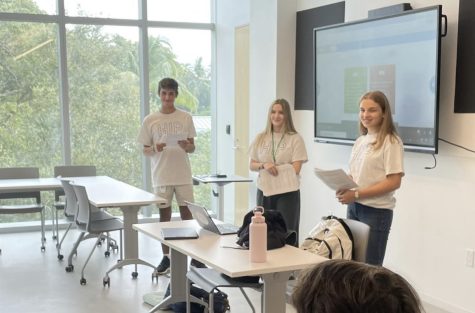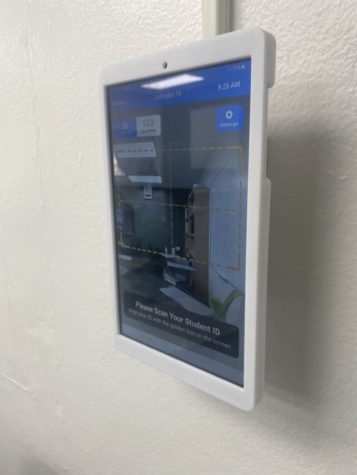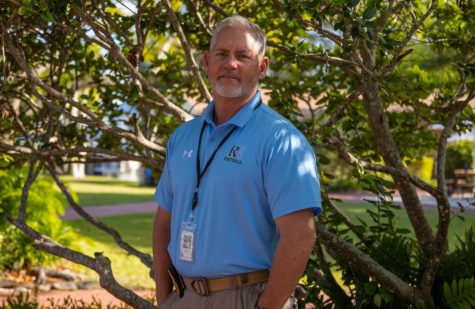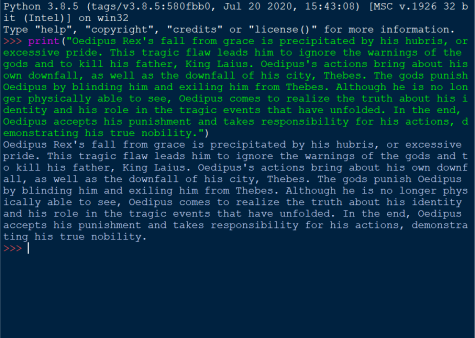Return to the (Virtual) Classroom: Student Perspectives on the First Week of School
When students logged off their final classes last June, they never imagined, three months later, to start the upcoming school year by returning to the same screens. Yet as the fall semester of 2020 begins, teachers and students are once again confined to their virtual boxes to start a new year of learning.
“Honestly, I was pretty excited,” Jackson Pegg ‘23 said. “We had been off for so long after three months of summer and some months of virtual school. Even though we were coming back virtually, I was pretty excited. And then I realized after the first three days of school that there is absolutely nothing to be excited for. Ransom is doing a great job, but the virtual thing is really not fun.”
“It feels kind of weird not seeing my friends,” Nicolas Fayad ‘24 commented. “But [Ransom has] to do what they [have] to do. It’s not the worst thing, but it is kind of annoying.”
Despite the same online setting, Ransom Everglades made several significant changes to the way virtual school is conducted. A new block-only format guarantees that all students have a maximum of four classes a day with a twenty–minute break in between each. “The twenty minutes in between classes is really, really nice,” Jessica Weinstein ‘22 said. “It’s nice to have that little break to look away and breathe.”
Another major schedule shake-up is a two-hour lunch and AAA period for class and club meetings, as well as extra help. “I’m involved in a lot of different activities,” Weinstein noted. “So I don’t get such an amazing, full two-hour break.”
Overall students seem happy with the new online schedule. “I like it better because Fridays were a lot because we had every class,” Emma Rosenthal ‘21 said. “So it’s good that it’s broken up. But it will take getting used to. It’s not like there’s a Monday and a Tuesday schedule because I’m used to having Tuesdays always be even classes. But now because it alternates, it will be strange that the days aren’t consistent.”
In order to better accommodate students for the new virtual school format, the school provided all students with a brand-new Lenovo Yoga laptop. “I like them,” Fayad said. “Getting all the apps is good for schoolwork. Honestly, it’s kind of inconvenient to have two laptops because I still have my own that I use. So, it’s kind of weird having to use two different ones, but I don’t really mind it that much.”
Other students agree that the transition to the new technology presented difficulties. “Right now, I’m kind of all over the place,” Weinstein admitted. “And [I am] switching between computers because I still haven’t figured out how the new computer works. I’ve been trying to take notes with the pen. I think it will be really great in the long run, but for now it’s kind of hard to get it going.”
Even with the new technology, some students still prefer pen and paper. “I prefer to not take my notes on Microsoft Teams or OneNote,” Pegg said. “I just do it in a notebook because I [took notes on the tablet] in math and it did not work out.”
Similarly, the faculty is also adapting to the new platforms and adjusting teaching styles to accommodate the new online learning. “All summer long teachers were doing professional development,” Upper School Dean of Students Lindsay Danielson said. “Both externally and internally. There was a lot of scaling up happening in the confines of our technology department and offering support.”
Ms. Danielson also discussed how teachers have shifted their teaching plans to fit the new schedule. “I think what it has done is it has sort of shifted the ways in which we look at ‘what are the targets we want within our synchronous learning?’ and ‘what are the things we want as targets for our asynchronous learning?’”
“I think it has been very uplifting and very motivating just to see how collaborative people are being,” Ms. Danielson said. “And how open and flexible and agile students, faculty, staff, and families are with adapting to the new times.”
Although school has resumed virtually, students still miss the first week-of-school traditions.
“I really missed the first day of school,” Weinstein said. “And seeing people you haven’t seen in a really long time and catching up on everyone’s summers and the things that they did. And just seeing people smile. I miss being around not just my friends, but the entire school atmosphere. The other day I was thinking about how even though our whole school was under construction when we were there last semester and how we would all walk to assembly in that big crowd of people and just wondering about when we’ll be able to be like that again, feeding off of everyone around you. I really miss feeling like a part of the community that is Ransom.”
Both SGA and the faculty leadership are working to ensure that the school maintains that sense of community.
“[SGA’s] first meetings have been discussing what we can do to make it feel like we’re back together,” Pegg, a sophomore class representative, said. “Nothing yet but we’re brainstorming.”
“[Virtual education] forces us to ask the question of, ‘how can we continue to connect with students in ways that are perhaps not academic?’ Ms. Danielson said. ‘Are there things that we like that we can chat about?’ There are sometimes at the beginning of class where maybe a teacher opens with, ‘how are you all doing?’ What is it that you are watching?’ What are you doing in your spare time?’”
“While we are virtual it may be difficult to feel like we are all belonging,” Ms. Danielson noted. “We just have to be more direct about building those connections and that is what we are working on now.”
But many students are still missing out on irreplaceable times in their high school careers.
Fayad, who made the transition to the upper school from the middle school this year said, “Honestly, since we’re online, it kind of feels like the same as the middle school. It just doesn’t really feel like high school should feel like, I’m guessing.”
“I mean it’s senior year,” Rosenthal said. “I don’t think anyone was expecting to not be on campus and see their friends. So, I just miss being around people in our grade and seeing teachers and being on Ransom campus was something I was looking forward to.”
Despite the lost experiences, the absence of in-person school plays into a much larger issue of living as a teenager during a global pandemic.
“Being a teenager now, you kind of live off of social interaction with your friends,” Pegg remarked. “And when you don’t have that it gets tough. We’re all trapped in our rooms for eight hours a day and it’s not fun. We’re all just looking forward to getting back.”


